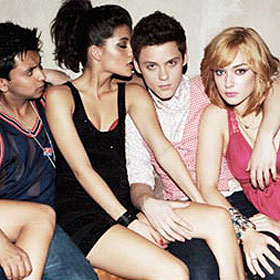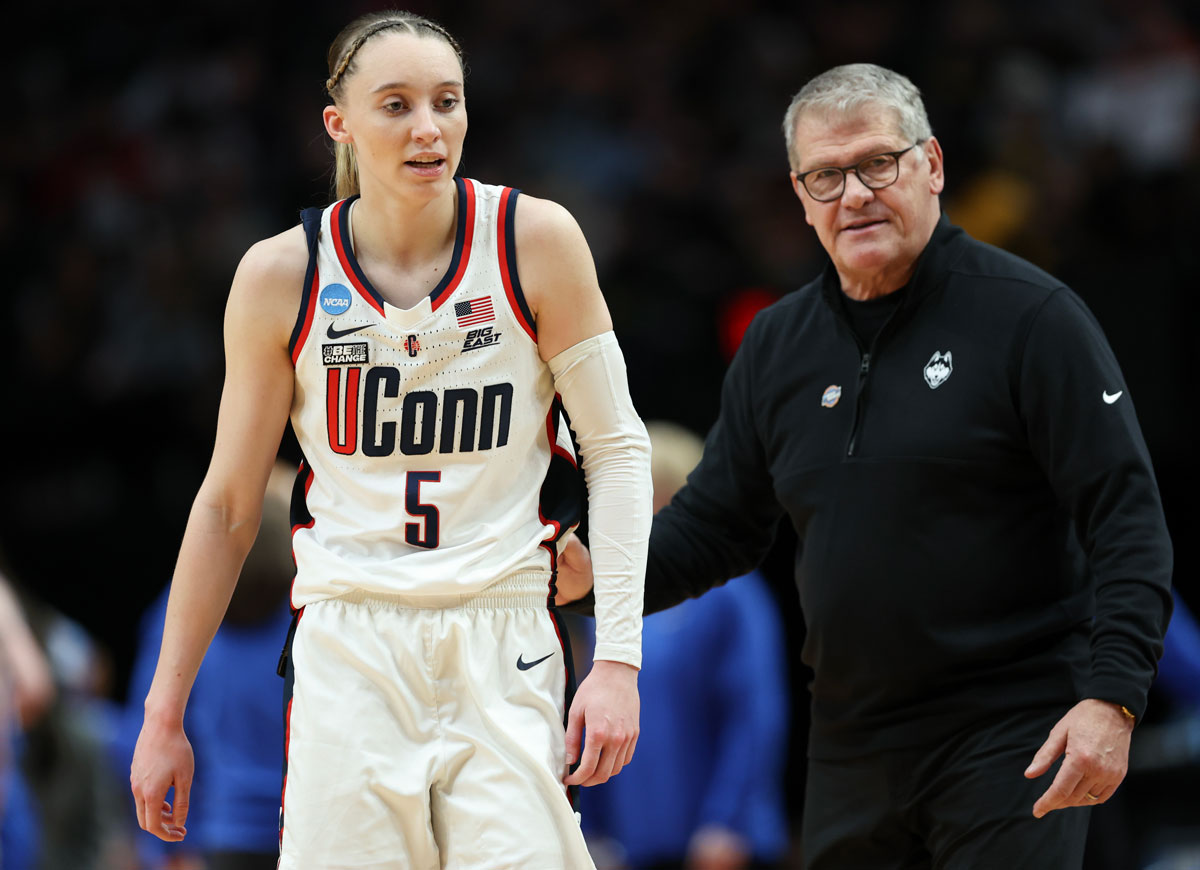MTV's 'Skins': Worth All The Hype?
Skins was born out of a conversation between a middle-aged British TV writer, Bryan Elsley, and his teenage son, Jamie. After criticizing his father for creating boring and irrelevant shows, Jamie suggested that his dad write a show based on consultations with real teenagers. It had amazing potential, so Elsley and Jamie rounded up a cohort of local teenagers, and employed them as writers for a show named after the British slang term for the papers used to roll joint. Skins, as the dual meaning of its name suggests, features teens doing drugs and having sex. After five successful seasons in the UK, an American version was created and debuted last month. Parents, activists and mental health professionals have not been happy.
Although Skins Americana-style is said to be less risque that its British counterpart, every magazine and news source from ABC to Time and the New York Times has run a story calling the show profane, inappropriate, unrealistic, disturbing and absolutely unfit for its target audience: teenagers. Consequently, Taco Bell, Subway, General Motors, and H&R Block pulled their advertising, and the NYC Metro declared that it will not host billboards for the show's second season. MTV has defended itself by arguing that Skins is, "specifically designed to be viewed by adults." Skins airs at 10:00 pm with a rating of TV-MA, which means that it, "may not be suitable for for those under 17 years of age." If it is too sexy for young people, then at least they've been warned?
A slew of Americans don't think these cautions are sufficient. Critics argue that Skins verges on kiddie porn and should be pulled from the air. Child pornography is constituted as, "any visual depiction of a minor engaged in sexually explicit conduct. With a first season that includes child nudity (the backside of a 17-year old boy), hyper-sexual teen behavior, and a sexual encounter between a teen and a middle-aged man, MTV is certainly in dangerous waters.
Besides being called sexually exploitive of young people, Skins has been identified as problematic for marketing itself not as a fictitious teen drama but as, "a very serious attempt to get to the root of young people's lives." Skeptics imagine that the show will convince teenagers that chasing tail, hot-boxing a car in the school parking lot and advising girls to take off their clothes to feel happy is what everyone their age is doing.
Some teens don't need to be convinced; viral videos and forums on the Skins official website reveals that teens believe the show is "the way things really are." Is this truth or are these declarations mere delusions of grandiosity? Certainly young people experiment with drugs and sex, so some of the events and actions on Skins do not seem far-fetched, like hooking up at a party or abusing a friend's prescription drugs. However, each episode of the show shows an incredible amount of wild behavior that result in zero consequences, meaning it is entirely improbable that Skins reflects the average teen's real life. While the show's content comes from real teens, a collection of the advisory board's crazy antics are condensed into a single episode so that it is entertaining enough to be on TV.
Terry Real, a family therapist, who appeared on ABC News shortly after Skins went on air, told parents that if their teens really want to see Skins, then attempting to stop them will be futile. What parents can do, Real advised, is teach teens to be "media literate" and "sexually literate." That means that parents shouldn't focus on censoring everything their children watch, but on teaching their teens to be analytical of the shows, movie and commercials that they watch and see. If kids learn to be objective, to trust their own opinions and to decide what they want for themselves, then they can survive and maybe even learn from their encounters with questionable entertainment.
Teens who can objectively analyze Skins' content might realize that the show maintains negative stereotypes about boys, that they are ready for sex at any time and any place, and girls, that they must use sex to maintain male interest. They might also notice that the show is artificial, the characters are uncomfortably young to be licking one another's ears and unlatching one another's bras (especially on television) and that by the end of an episode they have not learned anything nor have they been very entertained.
In Episode 4, the off-beat, anorexic, middle-class African-American beauty, Cadie, reveals her difficult home life (her dad is an aloof taxidermist and her mother is a self-absorbed ex-Beauty Queen) and her cabinet loaded with prescription anti-depressant drugs. Teen depression is a serious issue, but Skins does not seem to realize such. By the end of the episode, the uber-depressed Cadie has been taken advantage of by her peers who invite her to a party on the premise that she will provide them with prescription drugs. During the party, the long-haired blonde boy that Cadie desperately wants to be her boyfriend stops her before she has sex with a pedophile, which causes Cadie to run home where she attempts to console herself by taking the fetal position. In the morning, after her mother finds her and declares her "unstable," Cadie pops three or four pills that she has been warned are intense, anti-epileptic drugs. The frightening moment is not suicide, but an idiotic attempt to calm herself; what's worse is that the production team does not comment on her unfortunate pill-popping as dangerous.
Perhaps rather than being so concerned that teens are being exposed to explicit content, we should be questioning why we are feeding America's youth such a brain-dead show. Skins' characters think that they are clever because they get away with all sorts of dangerous behavior, but the kids are not clever at all.
Unlike real teens, the kids on Skins can do whatever they want without any negative outcomes, scolding, STDs or pain (their car goes into a river while they are high inside and everyone comes out smiling). Considering that the U.S. is currently trying to figure out how to keep yet another generation from growing up to be complete idiots (see: Obama's State of the Union), red-flag raising may be in order. Where are all the smart shows for young audiences? Where are the shows that are going to get teens interested again in math and science?
Even with all of the controversy, it looks like the show is going to stay on air, that is, if it maintains a solid audience. Skins dropped nearly half of its viewers, down from 3.3 to 1.6 million, between its first and second episodes. Are those 1.7 million Americans also wondering – MTV, do you think we're so daft?
RELATED ARTICLES
Get the most-revealing celebrity conversations with the uInterview podcast!








Leave a comment